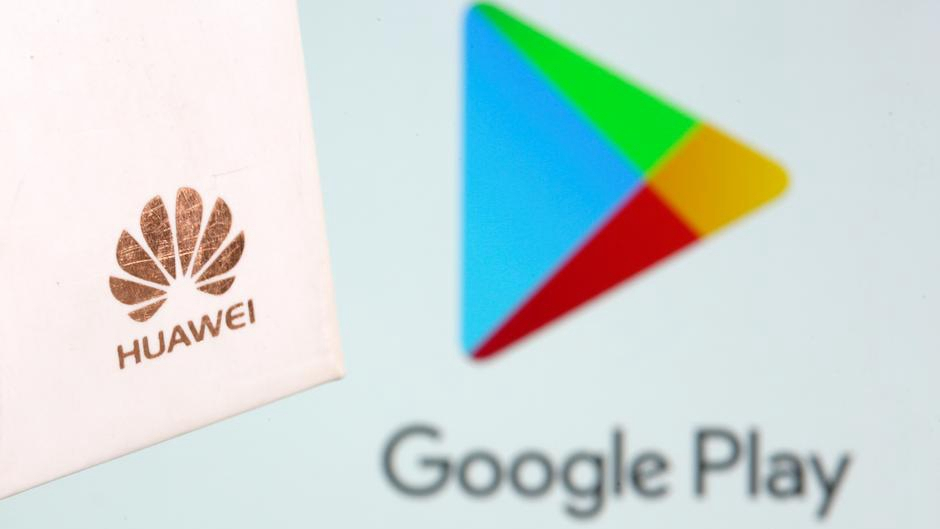

Editor's Note: Tom Fowdy is a British political and international relations analyst and a graduate of Durham and Oxford universities. He writes on topics pertaining to China, the DPRK, Britain, and the United States. The article reflects the author's opinions, and not necessarily those of CGTN.
On Tuesday, U.S. President Donald Trump commented on an excerpt from Fox and Friends, which stated that "Billionaire Tech Investor Peter Thiel believes Google should be investigated for treason. He accuses Google of working with the Chinese Government." He followed up on the comment by stating "The Trump administration will take a look."
As the United States government has, in parallel to Trump's trade war, been pursuing a "tech war" against China, particularly in an effort to limit Beijing's access to American technology and research, as well as attempting to inhibit companies such as Huawei, the remarks from the president were certainly not to be taken lightly.
Google aspires to play a prominent role in the country's technology markets, including the selling of hardware, smartphones and other equipment to Chinese companies.
In addition, it has also been selling cloud space to high flying firms such as Alibaba and Tencent. It has also been investing in artificial intelligence (AI) research within the country.
Given this, there is a high probability the firm may soon be coming under pressure from the administration in Washington, which will strive to coerce it into toeing a "national line" for its business.
Even if the wider trade war between the two countries can be resolved, the Trump administration's determination to end "tech globalization" and maintain a reserved sphere of American innovative hegemony, with China locked out, remains very much clear.
Thus, a new battleground may be opening.

VCG Photo
The situation Google finds itself in now stems from a globalized tech market centered in the U.S, which is now being attacked by government-enforced "borders and boundaries."
The Trump administration is effectively seeking to bring an end to what we might describe as "the globalization of technology" – that is, to prohibit the spread of American innovation to countries which fall outside of the country's political sphere, in this specific case, China.
In doing so, the United States hopes to block China's technological ascendency by aiming to deprive it of key components and research, believing that openness from Washington has allowed the country "to gain at their own expense."
As a result, such logic has seen the U.S. take aim at successful Chinese firms deemed to be overtaking their own capabilities such as Huawei, and recently several supercomputer companies.
Inevitably, this has meant that the White House has taken a heavy hand against America's very own Silicon Valley. The listing of Huawei as an "entity" in May saw behind-the-scenes outrage from a host of technology companies that were effectively deprived by force of one of their largest customers.
Although such corporate lobbying has convinced Trump to make concessions, tensions nevertheless remain over the subject.
Given this context, the probability of the administration taking aim at Google for supplying hardware and also conducting joint research on AI projects is high.
With the United States attacking China on any field of technology deemed to be surpassing their own, there is no doubt at all that after 5G and supercomputers, AI will become a battlefield in the tech war and Washington politicians will have little tolerance for the idea of an American company cooperating with Beijing in this area, even if it is to America's gain.
As a result, Trump's comments indicate that the White House may consider future measures aiming to restrict American companies from conducting overseas research with Chinese partners, likely via an executive order.

Huawei Technologies Co. Mate20 Pro smartphones sit on display inside a Media Market electronic goods store, operated by Ceconomy AG, in Berlin, Germany, December 17, 2018. /VCG Photo
Athough there is no evidence whatsoever that "Google is working with the Chinese government," these narratives are pursued for their political advantages, not for the facts.
Given this, as we have seen with Huawei, we should undoubtedly expect the "national security" card to be waved again in ushering in a whole new range of potential restrictions.
For Google and similar Silicon Valley companies themselves, of course, such a course of action would prove to be devastating.
As the White House aspires to forcefully cut the global tech sphere in two, the loss of potential customers, markets and research opportunities will hit hard.
Given that any technology Google develops in China would also be of access and benefit to the United States itself, persistence on this pathway is likely to inhibit and isolate, rather than preserve American technological hegemony.
(If you want to contribute and have specific expertise, please contact us at opinions@cgtn.com.)

Copyright © 2018 CGTN. Beijing ICP prepared NO.16065310-3
Copyright © 2018 CGTN. Beijing ICP prepared NO.16065310-3